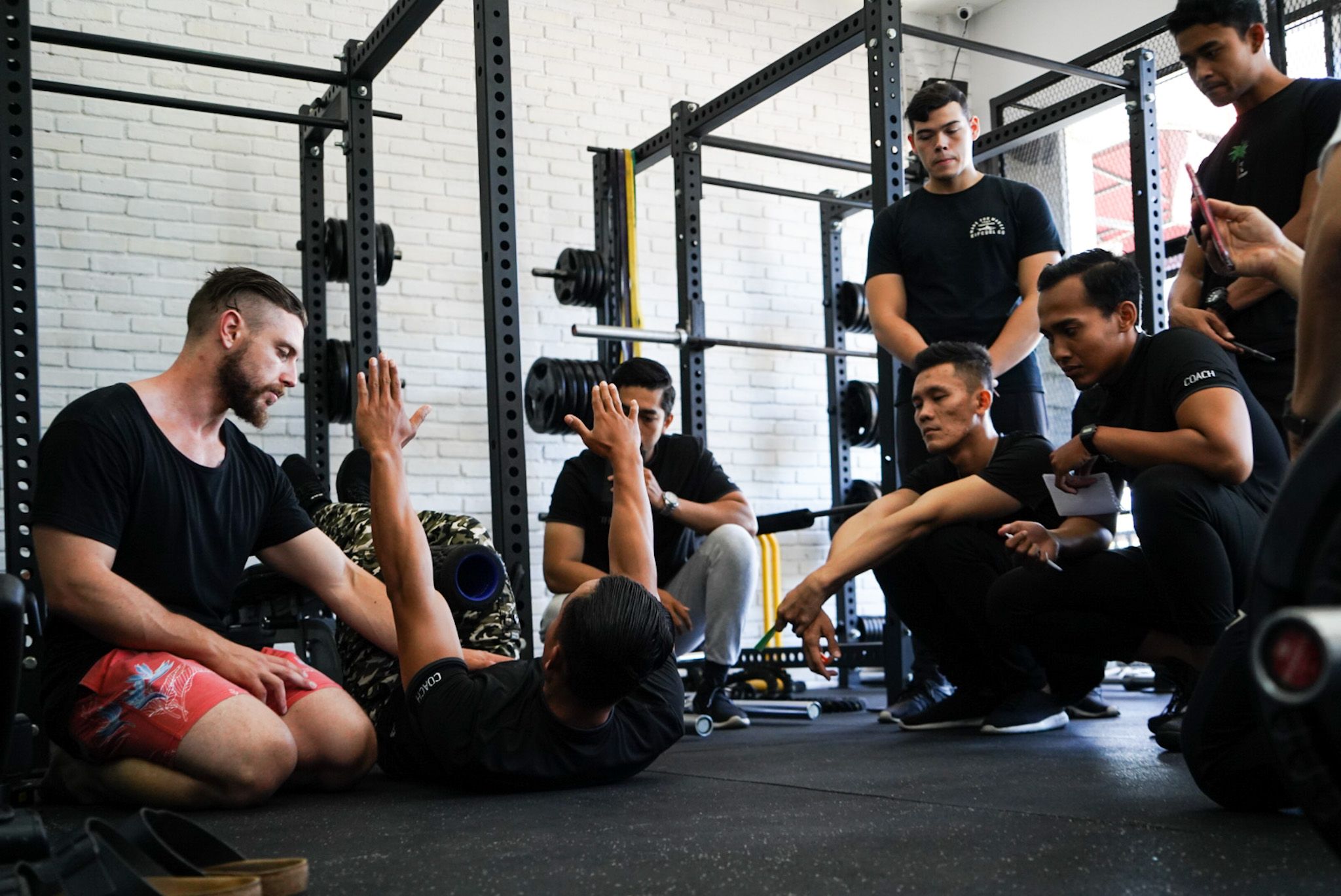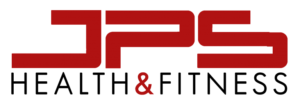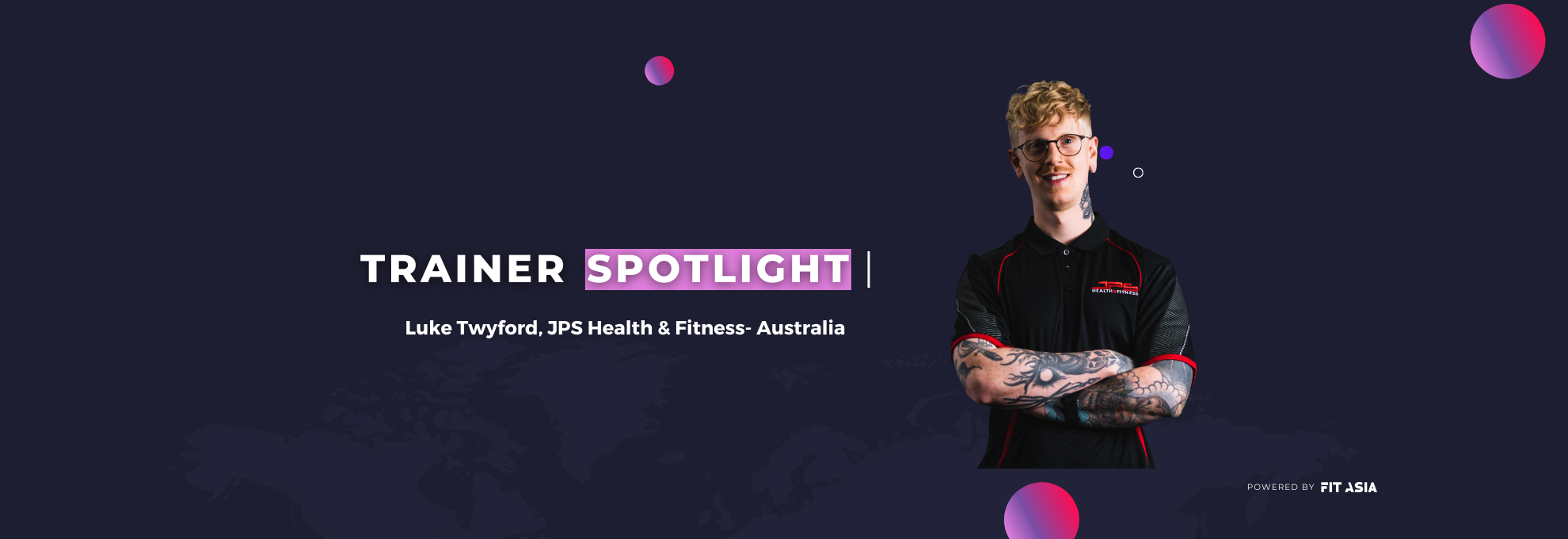Tell us a little bit about you
My name is Luke Twyford and I am a head coach at JPS Health & Fitness. As well as working with face to face and online clients, I also run our 10 Weeks to Lean program and contribute to the JPS Education Portal.
I’m not quite a household name but I am known for my ability to work with a diverse array of individuals, often focusing on body composition outcomes and habit forming around training and nutrition. I like to think I’m a compassionate individual, and I find that getting to know my clients and building a strong relationship is the best way to help them achieve their goals.
What made you pursue the career path you are now on? What was the main catalyst?
Having grown up in the United Kingdom playing soccer and various other sports, I’ve always had an affinity for training and physical activity, but it was only in my late teens / early 20s that I really started to appreciate the gym and everything that resistance training had to offer. My first coach in London really opened my eyes to the realm of evidence-based training and this is really what planted the seed of wanting to learn more about what coaching had to offer as a career path.
Fast forward to 2020 and I found that my job at the time wasn’t fulfilling and wasn’t allowing me to progress in any meaningful way. During the first of our lockdown’s in Victoria, I decided that it was time to make a change, and I signed up to do my Certificate 3 & 4 with JPS. After spending years working in areas that I had little to no interest in, I figured that I would be best suited to a job in an industry I wanted to be part of, whilst allowing me to help others.
Do you recommend getting a fitness qualification/certification over gaining actual experience first, and why?
Both experience and certification go hand in hand when it comes to being successful in the fitness industry, however I believe that the relevant qualifications should almost always come first as they ensure that you are covered with the foundational knowledge and skills required to undertake the role and ensure that you aren’t putting clients at risk. That said, if you ever have the opportunity to gain experience whilst completing your qualifications, I believe this is the most beneficial approach as it allows you to conceptualise the theory side of things, in a practical environment. In the fitness industry, shadowing other coaches or personal trainers is often the best way of doing this!

What does your typical day look like?
Whilst I like to have consistency and structure with my days, it’s rare that any one day looks the same as the next. That said, a typical morning for me starts around 6am with client sessions. These usually last until late morning, at which point I’ll train or begin doing my steps, depending on whether it’s a rest day. From there I will begin with any content creation or client check-ins, until midday. My check-ins are usually done on Monday and Tuesday so content creation is usually done later in the week.
If I have client sessions in the afternoon, I will stay at the gym and continue working until my first client arrives around 3pm. If not, I like to work from my home office, tackling any projects or content that needs to be completed. I like to wrap up my day around 5 or 6pm, and whilst this may seem like a long day, the flexibility allows me to work at a sustainable pace and take breaks when needed. The fact that each day is different from the next keeps me engaged and prevents any feelings of monotony.
As with any job, some days are more challenging than others, however I enjoy the dynamism of being a coach and the sense of accomplishment that comes with successfully completing a task or reaching a goal with a client. As I have become more experienced, I find that my days often run relatively smoothly as I spend a lot of time planning and preparing my schedule. However as a new coach things are definitely more turbulent, so stay prepared!
How did recent advances in tech & innovation help you elevate your career?
As I have only been working in the industry for 2 years, I can’t really say I’ve experienced any major changes with technology. That said, moving client programs from spreadsheets to a mobile application has been the biggest step forward for me. Tracking volume, assessing performance over time, and even just writing programs and completing check-ins has become so much more efficient which frees up time elsewhere. Apps are also far more appealing to most clients, which further helps create by-in and a better overall consumer experience.
Another more recent step forward has been the introduction of AI. Whilst it’s still in its early stages, I have already found it to be really useful for helping to write instagram captions, or even just helping compose or edit sentences in a way that is easier to read. Although it still has its limits and shortcomings, I’m excited to see what the future holds for AI technology within the fitness industry!
How do you define success, and what are some of the challenges you have had to overcome?
For me, success is multifactorial, and is a journey as opposed to a destination. If my work is fulfilling and I am achieving results with my clients then that is half of the battle won. The other half comes down to sustainability. If I am financially stable and am able to maintain my workload without burning out, then I would say I’m successful.
Unfortunately it’s very rare to walk straight into a role as a coach or personal trainer and find that everything falls into place immediately. For me personally, I started my coaching career whilst still working in hospitality as I didn’t have a big enough clientele to support my income requirements. In addition, I had to contend with multiple lockdown’s throughout 2021 which prevented me from building any real momentum with my coaching. I had to stay patient, and it was only really in mid-2022 that I was able to commit more of my time to coaching, and move away from the stability of my old job. Whilst this was a leap of faith, it worked out for the best and really allowed me to thrive in my new coaching role.
To sum things up, patience is the biggest lesson I have learned from my time in the industry. That said, a second job can definitely be worthwhile when starting out as it provides a second source of income, but you need to remember that you may still need to take risks when it comes to reaching your end goal. Sometimes, a step back can allow you to take two steps forward!
What are some of your top tips to pass to current and/or emerging Exercise Professionals?
My first tip for aspiring fitness professionals would be to spend time shadowing good coaches. Learning the theory is vital, however being able to apply it in a practical environment is just as important. This will also give you the opportunity to ask questions and gain experience with cueing and implementing coaching techniques under supervision. For individuals who maybe aren’t as confident working with others, this will also allow you to spend time developing interpersonal skills which are vital when working with clients.
My next tip would be to continue upskilling. The certificate 3 & 4 is just the tip of the iceberg when it comes to becoming a successful coach, and continuing to take on new information and expand your knowledge base will help you refine your approach and stay up to date with emerging research around key principles. Mini-courses are a great option and will allow you to learn specific topics, but even just keeping an eye out for new research can be really useful. This is why we created the JPS EduPortal, which is full of useful information and content covering an array of topics!
Lastly, I’d encourage you to stay open minded and ready to learn. It’s really easy to fall into the trap of thinking that you know enough, however being open to new concepts and ready to hear what others have to say will help you learn about new ideas, and give you experience thinking critically. Good listening / communication skills will also greatly improve your ability to achieve outcomes with clients or colleagues.


